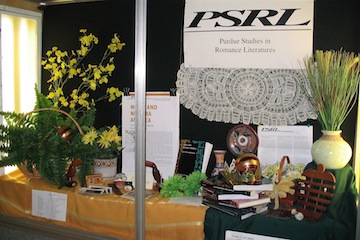Nossa and Nuestra América: Inter-American Dialogues
Robert Patrick Newcomb
Is Brazil part of Latin America, or an island unto itself? As Nossa and Nuestra América: Inter-American Dialogues demonstrates, this question has been debated by Brazilian and Spanish American intellectuals alike since the early nineteenth century, though it has received limited scholarly attention and its answer is less obvious than you might think. This book charts Brazil’s evolving and often conflicted relationship with the idea of Latin America through a detailed comparative investigation of four crucial Latin American essayists: Uruguayan critic José Enrique Rodó, Brazilian writer-diplomat Joaquim Nabuco, Mexican humanist Alfonso Reyes, and Sérgio Buarque de Holanda, one of Brazil’s preeminent historians. While these writers are canonical figures in their respective national literary traditions, their thoughts on Brazilian–Spanish American relations are seldom investigated, and they are rarely approached from a comparative perspective.
In Nossa and Nuestra América, Newcomb traces the development of two parallel essayistic traditions: Spanish American continentalist discourse and Brazil’s solidly national exegetic tradition. With these essayistic traditions in mind, he argues that Brazil plays a necessary—and necessarily problematic—role in the intellectual construction of “Latin America.” Further, in traversing the Luso-Hispanic frontier and bringing four of Latin America’s preeminent thinkers into critical dialogue, Newcomb calls for a truly comparative approach to Luso-Brazilian and Spanish American literary and cultural studies.
Nossa and Nuestra América will be of interest to scholars and students of Latin American and Luso-Brazilian literature and ideas, and to anyone interested in rethinking comparative approaches to literary texts written in Portuguese and Spanish.
"Nossa and Nuestra América is a well-balanced, thoughtful, and perceptive study of tropes of international relations in Latin America as expressed by some of the region's most notable writers." —Bruce Dean Willis, author of Aesthetics of Equilibrium
“…a must-read study on Latin American social thought that deals with the tense and productive relationship between Spanish American and Brazil.” —Alfredo César Melo, ReVista Fall 2012 http://drclas.harvard.edu/publications/revistaonline/fall-2012/brazil-part-latin-america
“Newcomb… establishes an inter-American dialogue between Brazil and Spanish American literatures by focusing on the essay tradition of the late 19th century and early 20th centuries.… This study provides an essential contribution to the growing field of inter-American studies while also suggesting that a great deal of work remains to be done.” —Krista Brune, Lucero 22 (2012): 81-84 http://lucerojournal.com/PaperDetail.aspx?type=Review&paperId=41
http://lucerojournal.com/Files/Papers_Edition/41.pdf“…a welcome and timely contribution to the emerging field of Luso-Hispanic comparativism.… Newcomb’s comparative method consists in a strategic displacement of the terms of comparison: from Europe or the United States to Latin America itself.” —Pedro Erber, ellipsis 10 (2012): 197-99 | ©2012 American Portuguese Studies Association http://www.ellipsis-apsa.com/pdfs/pdf_vol10/ellipsisV10Reviews.pdf
“[Newcomb’s] book is an important contribution to the literary history of Brazil and Spanish America, and to the increasingly important interdisciplinary enterprise of inter-American studies.” —Frans Weiser, Revista Iberoamericana 81.253 (Oct.-Dec. 2015): 1155-57.
See review in Book News Dec. 2011. PQ9514.
Robert Patrick Newcomb teaches Portuguese and Spanish at University of California–Davis. His articles, generally on comparative Luso-Hispanic topics, have been published in Estudos Avançados, Chasqui, Hispania, and Luso-Brazilian Review, among other journals. He is the translator of Alfredo Bosi’s Colony, Cult and Culture (University of Massachussetts–Dartmouth, 2008).
PSRL 52. 2011. x, 264 pp. ISBN 978-1-55753-603-7 Paper $45.00

Window display in Stanley Coulter Hall,
the week of December 7-14, 2011